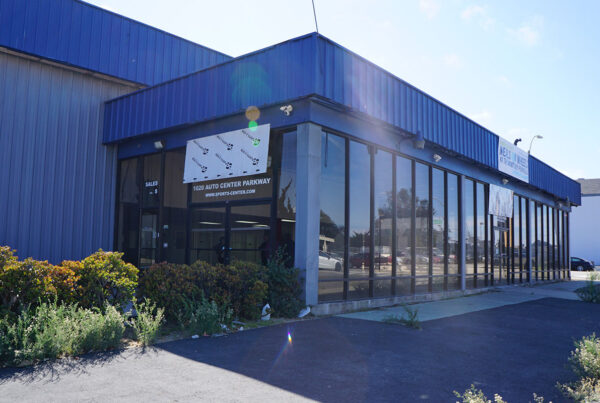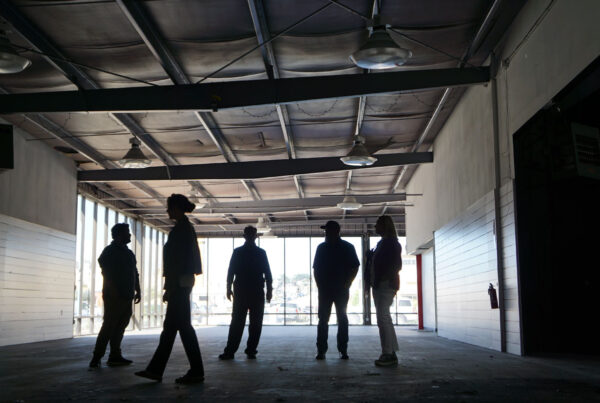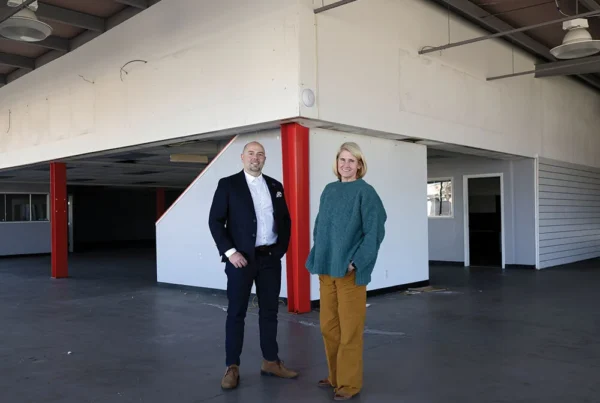IN PART due to Covid, the Meals On Wheels Community Center in Pacific Grove has significantly ramped up its services over the past two years
IN PART due to Covid, the Meals On Wheels Community Center in Pacific Grove has significantly ramped up its services over the past two years, which includes distributing more than 1,000 free meals five days a week. But some of its neighbors say the expansion is causing problems with noise and traffic congestion.
Conceding that the center needs more space, executive director Christine Winge said a plan is in place to open a second site at a former VA clinic on Engineer Lane in Seaside. The move will not only enable the center to significantly increase its capacity to distribute meals, but eliminate the noise and traffic the current operation creates. In the meantime, she said the center is also taking steps to address the concerns of its neighbors.
Traffic and noise disruptive
Located near Lovers Point in Pacific Grove, the Meals on Wheels center opened in the early 1980s when there was much less demand for free meals. Until recently, it was known as the Meals on Wheels Community Center, named for the woman who founded Meals on Wheels of the Monterey Peninsula in 1972.
The center is located across the street from a senior housing project, the Vista Point Apartments. While some of the people who live there complimented the center’s worthy mission, they said the noise and traffic it creates are disruptive.
Resident Gene Barcliff said noise from an outside refrigerator is preventing him from sleeping.
“I used to be able to hear the surf at night,” Barcliff said. “The noise comes in cycles and gets really loud before it shuts off.”
Another resident of the same complex, which is restricted to tenants 55 and over, started a petition among residents to call attention to the issues the center creates.
“The problem is manyfold,” Arthur Casulli said. “These giant 14-wheel trucks come in — three to four at a time — and there’s no place for them to turn around. They start around 6 a.m.”
At times, Casulli said, the refrigerator is “very loud.”
“To have an off-and-on 24-hour humming noise that varies in intensity is not healthy for people, especially those who are elderly,” he said.
While some suggested the refrigerator doesn’t have a permit, city building official John Kuehl confirmed that “all required permits have been obtained” for it.
Former councilman comments
A third neighbor, Steve Fuqua, said he uses a fan to block out the noise from the refrigerator at night. But his chief concern is the traffic the Meals on Wheels site is generating, with its accompanying hazards, which he said have caused at least one car accident. “It’s awful,” Fuqua said of the congestion along the road that separates the center and the housing complex.
Former Pacific Grove councilman Dan Miller has delved into the issues, and he said the residents’ complaints are valid, and the operation has outgrown its site and is impacting its neighbors, which also include a mobile home park.
“These people were living there and all of a sudden this so many vehicles backed up that people can’t get into the mobile home park.”
Meals on Wheels official Jacob Shafer said the center has significantly expanded its services since COVID began.
“The number of homebound seniors, disabled adults,veterans, and other underserved populations in need of our Home Delivered Meals program has doubled and remains steady from March 2020 to now,” he explained. “The pandemic tipped so many of our community members into food insecurity. Meals on Wheels has held fast to its mission and ramped up operations with the purchase of new equipment, hiring additonal staff, and increasing volunteers to support the preparation and delivery of meals to the homebound and disabled community.”
Shafer called the outside refrigerator “a key piece of equipment hat has allowed Meals on Wheels to meet the vast increase in demand for meals since the onset of Covid.”
‘We want to be good neighbors’
Winge said she’s hopeful a 99-year lease at the site in Seaside will be in place by the end of the year. A partnership between Meals on Wheels, the federal Department of Veterans Affairs and the Veterans Transition Center, the new center will have “tenfold” the capacity to distribute meals than the existing center in Pacific Grove.
“We plan to hit the ground running,” she said. “We’re already working with designers and kitchen specialists.”
Until the new center opens, Winge said the center will do what I can to address the concerns of those who live nearby. Regarding the refrigerator, she said noise engineers have been consulted and modicications have been made.
“We are actively looking for additional solutions,” she added. “We want to be good neighbors.”







